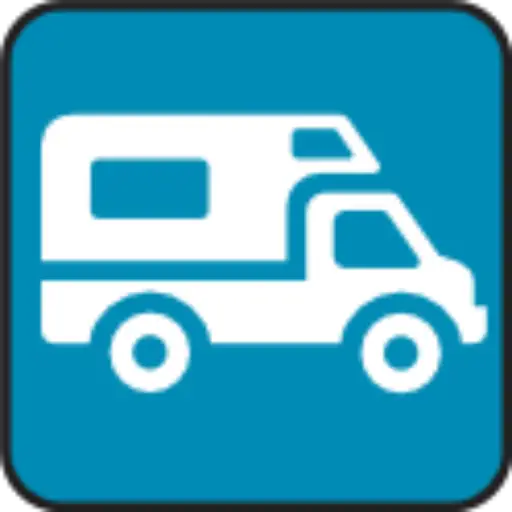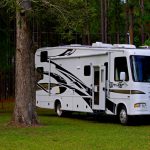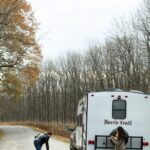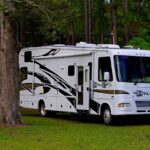
The RV lifestyle is a dream for many, promising adventure, freedom, and a chance to explore the open road. But before you jump into the driver’s seat of your shiny new camper, there are a few things you should know. We’ve been there, done that, and learned a lot along the way. Remember that time we forgot to pack a sewer hose and had to improvise with a garden hose? Let’s just say it wasn’t pretty. We’re here to share our hard-earned wisdom and help you avoid the same mistakes. This comprehensive guide covers everything from essential gear to RV maintenance, community, and safety. So buckle up, grab a cup of coffee, and let’s get started!
Key Takeaways
- RVing is not as cheap as you think. You’ll need to factor in the cost of the RV itself, fuel, campground fees, and maintenance.
- Your camper doesn’t come camping-ready. You’ll need to purchase a few essential items to make your camping experience comfortable and enjoyable.
- Weight is a critical factor in RVing. You need to be aware of the weight of your RV, the weight of your cargo, and the weight of your tow vehicle.
- The RV community is a welcoming and supportive group. You’ll find a lot of help and advice from fellow RVers.
- Safety is paramount when RVing. You need to be aware of the potential hazards and take steps to protect yourself and your family.
👉 Shop
- Happy Camper: Amazon | Walmart | Camping World
- Thetford: Amazon | Walmart | Camping World
- Angel Soft Toilet Paper: Amazon | Walmart | Target
- Electric Heater: Amazon | Walmart | Camping World
Table of Contents
- Quick Tips and Facts Quick Tips and Facts
- The RV Lifestyle: A Brief History The RV Lifestyle: A Brief History
- Your Camper Doesn’t Come Camping-Ready Your Camper Doesn’t Come Camping-Ready
- Be Prepared to Drop Some Money Furnishing Your Camper Be Prepared to Drop Some Money Furnishing Your Camper
- Let’s Talk About Camper Toilets Let’s Talk About Camper Toilets
- Get (and Stay) Organized Get (and Stay) Organized
- Plan and Prep Meals Plan and Prep Meals
- An Amazing Tip to Save on Propane An Amazing Tip to Save on Propane
- Weight Truly Does Matter Weight Truly Does Matter
- Keep a Small Tool Box in Your Camper Keep a Small Tool Box in Your Camper
- Do Multiple Walk-Arounds Before Leaving Your Campsite Do Multiple Walk-Arounds Before Leaving Your Campsite
- Let’s Talk About Backing Your Camper Let’s Talk About Backing Your Camper
- Purchasing a Camper to Travel in Isn’t a Money-Saving Endeavor Purchasing a Camper to Travel in Isn’t a Money-Saving Endeavor
- The RV Community: A World of Support The RV Community: A World of Support
- RV Safety Tips: Keeping You and Your Family Safe RV Safety Tips: Keeping You and Your Family Safe
- Did You Enjoy This Post? PIN IT So Others Can Too! Did You Enjoy This Post? PIN IT So Others Can Too!
- Conclusion Conclusion
- Recommended Links Recommended Links
- FAQ FAQ
- Reference Links Reference Links
Quick Tips and Facts
RVing is a fantastic way to travel and experience the world! It offers flexibility, freedom, and the opportunity to create lasting memories. But before you hit the open road, there are a few things you should know.
Here are some quick tips and facts to get you started:
- RVing is not always as cheap as you think. You’ll need to factor in the cost of the RV itself, fuel, campground fees, and maintenance.
- You need to be prepared to do some work. RVing is not always glamorous. You’ll need to be comfortable with basic maintenance and repairs.
- There’s a whole community of RV enthusiasts out there. You’ll find plenty of support and advice from fellow RVers.
We recommend checking out our article on What is the best RV for a beginner? to learn more about the different types of RVs available.
The RV Lifestyle: A Brief History

The RV lifestyle has a rich history, dating back to the early 20th century. The first RVs were essentially converted horse-drawn wagons, but they quickly evolved into more sophisticated vehicles.
Here are some key milestones in the history of RVing:
- 1910: The first “motor home” was built by a man named Pierce-Arrow. It was a luxurious vehicle with a built-in kitchen, bathroom, and sleeping quarters.
- 1920s: The first mass-produced RVs were introduced. These were typically small trailers that were towed behind cars.
- 1950s: The RV industry began to boom after World War II. More and more people were looking for affordable ways to travel and enjoy the outdoors.
- 1960s: The first Class A motorhomes were introduced. These were larger, more luxurious vehicles that offered all the comforts of home.
- 1970s: The RV industry continued to grow, with the introduction of new models and technologies.
- 1980s: The RV industry faced some challenges due to the recession, but it rebounded in the 1990s.
- 2000s: The RV industry experienced a resurgence in popularity, with more and more people embracing the RV lifestyle.
Today, the RV industry is a multi-billion dollar industry, with millions of people enjoying the freedom and flexibility of RV travel.
Your Camper Doesn’t Come Camping-Ready
You might think that once you buy your camper, you’re ready to hit the road. But that’s not quite true. Your camper doesn’t come camping-ready.
You’ll need to purchase a few essential items to make your camping experience comfortable and enjoyable.
Here are some of the most important items to consider:
- Sewage hose: This is used to connect your RV’s sewer system to the campground’s sewer hookup. You’ll need a hose that is long enough to reach from your RV to the sewer hookup.
- Surge protector: This protects your RV’s electrical system from power surges. It’s essential to have a surge protector, especially if you’re camping in an area with unreliable power.
- Water hose: This is used to connect your RV’s water system to the campground’s water hookup. You’ll need a hose that is long enough to reach from your RV to the water hookup.
- Water pressure regulator: This regulates the water pressure coming into your RV. It’s important to have a water pressure regulator to prevent damage to your RV’s plumbing system.
- Leveling blocks: These are used to level your RV. Leveling your RV is important for ensuring that your appliances work properly and that you have a comfortable sleeping experience.
- Chocks: These are used to prevent your RV from rolling while you’re parked. It’s important to use chocks, especially if you’re parked on a slope.
- First aid kit: This is essential for treating minor injuries.
- Fire extinguisher: This is essential for putting out fires.
- Tool kit: This is useful for making minor repairs.
- Jack: This is used to lift your RV if you need to change a tire.
- Level: This is used to level your RV.
- Flashlight: This is essential for seeing in the dark.
- Toilet paper: This is essential for, well, you know.
- Paper towels: These are useful for cleaning up spills and messes.
- Dish soap: This is essential for washing dishes.
- Trash bags: These are essential for keeping your RV clean.
- Camping chairs: These are essential for relaxing around the campsite.
- Camp table: This is useful for eating and preparing meals.
- Cooking supplies: This includes pots, pans, utensils, and other items you’ll need to cook meals.
- Food and drinks: This is essential for staying hydrated and fueled.
- Bedding: This includes sheets, blankets, pillows, and other items you’ll need to sleep comfortably.
- Personal hygiene items: This includes soap, shampoo, conditioner, toothpaste, and other items you’ll need to stay clean.
- Entertainment: This includes books, movies, games, and other items you’ll need to keep yourself entertained.
You can find all of these items at your local RV dealership or online. We recommend shopping around to compare prices and find the best deals.
Be Prepared to Drop Some Money Furnishing Your Camper
You might think that once you buy your camper, you’re ready to hit the road. But that’s not quite true. Your camper doesn’t come camping-ready.
You’ll need to purchase a few essential items to make your camping experience comfortable and enjoyable.
Here are some of the most important items to consider:
- Bedding: You’ll need sheets, blankets, pillows, and possibly a comforter or duvet. You can find RV-specific bedding, or you can use regular bedding that fits your camper’s bed size.
- Dishes: You’ll need plates, bowls, cups, and silverware. You can find RV-specific dish sets, or you can use regular dishes that are lightweight and durable.
- Pots and pans: You’ll need pots and pans for cooking meals. You can find RV-specific cookware, or you can use regular cookware that is lightweight and durable.
- Storage containers: You’ll need storage containers to keep your food and other items organized. You can find RV-specific storage containers, or you can use regular storage containers that are lightweight and durable.
- Kitchen supplies: You’ll need basic kitchen supplies, such as a cutting board, knives, a can opener, a spatula, and a whisk. You can find RV-specific kitchen supplies, or you can use regular kitchen supplies that are lightweight and durable.
- Decor: You can add some personal touches to your camper with decor, such as curtains, rugs, and throw pillows. You can find RV-specific decor, or you can use regular decor that is lightweight and durable.
We recommend shopping around to compare prices and find the best deals. You can find all of these items at your local RV dealership or online.
Let’s Talk About Camper Toilets
Let’s face it, camper toilets aren’t exactly known for their luxurious amenities. But they are a necessary part of the RVing experience.
Here are some things you should know about camper toilets:
- They use a holding tank system. This means that the waste is collected in a tank until you can empty it. You’ll need to empty the tank at a dump station.
- They can be a bit smelly. This is because the waste is being held in a tank. You can use a product like Happy Camper to keep the toilet fresh.
- They can be a bit difficult to flush. This is because the water pressure is lower in an RV. You can use a product like Thetford Aqua-Kem Green to help flush the toilet more effectively.
- They can be a bit messy. This is because the waste is being held in a tank. You’ll need to clean the toilet regularly.
- Don’t waste money on expensive camper toilet paper. Angel Soft is a budget-friendly alternative that works just as well.
Black tank emptying is not as bad as many think. It’s actually a pretty simple process. You just need to connect your RV’s sewer hose to the dump station’s sewer hookup, open the black tank valve, and let the waste drain out.
We recommend practicing emptying the black tank at home before you go on your first trip. This will help you get comfortable with the process.
Get (and Stay) Organized
RV living is all about maximizing space. You’ll need to get organized to make the most of your camper’s limited storage space.
Here are some tips for getting and staying organized in your RV:
- Use various storage containers. This will help you keep your belongings organized and prevent them from rolling around. You can find RV-specific storage containers, or you can use regular storage containers that are lightweight and durable.
- Designate specific locations for items. This will make it easier to find what you need. For example, you could have a designated spot for your toiletries, a designated spot for your cooking supplies, and a designated spot for your clothes.
- Use vertical space. You can maximize your storage space by using vertical space. For example, you could use shelves, drawers, and hanging organizers.
- Keep things tidy. It’s important to keep your RV tidy to prevent clutter from building up. This will make your RV feel more spacious and comfortable.
We recommend taking the time to organize your RV before you go on your first trip. This will make your trip much more enjoyable.
Plan and Prep Meals
One of the best things about RVing is the opportunity to cook meals in your own kitchen. But it’s important to plan and prep your meals to make the most of your time on the road.
Here are some tips for planning and prepping meals in your RV:
- Plan your meals in advance. This will help you avoid eating out too often, which can get expensive. You can create a meal plan for the entire trip, or you can plan meals for each day.
- Precook items. This will save you time and effort while you’re on the road. For example, you could precook tacos, bacon, chicken, or ground beef. You can then reheat these items in your RV’s oven or microwave.
- Use a slow cooker. A slow cooker is a great way to make meals in your RV. You can simply throw the ingredients in the slow cooker and let it cook while you’re out exploring.
- Use a pressure cooker. A pressure cooker is another great way to make meals in your RV. It can cook meals quickly and easily.
- Pack snacks. It’s important to pack snacks to keep you fueled while you’re on the road. You can pack healthy snacks, such as fruits, vegetables, nuts, and seeds. You can also pack less healthy snacks, such as chips, candy, and cookies.
We recommend packing a variety of foods to keep your meals interesting. You can also find recipes online for RV-friendly meals.
An Amazing Tip to Save on Propane
Propane is a necessary part of RVing, but it can be expensive. Here’s an amazing tip to save on propane:
- Use electric heaters instead of propane heaters. This will save you a lot of money on propane. You can find electric heaters that are specifically designed for RVs. This particular heater is a good option for a 30ft camper.
- Switch the hot water heater to electric when possible. This will save you money on propane. You can find electric hot water heaters that are specifically designed for RVs.
We recommend using electric heaters and hot water heaters whenever possible to save money on propane.
Weight Truly Does Matter
Weight is a critical factor in RVing. You need to be aware of the weight of your RV, the weight of your cargo, and the weight of your tow vehicle.
Here’s why weight matters:
- Your RV’s payload capacity: This is the maximum amount of weight that your RV can safely carry. You can find your RV’s payload capacity in the owner’s manual.
- Your tow vehicle’s tow capacity: This is the maximum amount of weight that your tow vehicle can safely tow. You can find your tow vehicle’s tow capacity in the owner’s manual.
- Your RV’s gross vehicle weight rating (GVWR): This is the maximum weight that your RV can weigh, including the weight of the RV itself, the weight of your cargo, and the weight of any passengers. You can find your RV’s GVWR on the RV’s certification label.
If you exceed your RV’s payload capacity or your tow vehicle’s tow capacity, you could damage your RV or your tow vehicle. You could also be in danger of an accident.
We recommend weighing your RV at a CAT Scale to ensure that you’re within the payload capacity. You can also use a weight distribution hitch to help distribute the weight of your RV more evenly.
Keep a Small Tool Box in Your Camper
You never know when you might need to make a minor repair. It’s a good idea to keep a small tool box in your camper.
Here are some essential tools to include in your tool box:
- Screwdrivers (Phillips and flathead): These are useful for a variety of tasks, such as tightening screws and removing screws.
- Socket wrench: This is useful for tightening and loosening nuts and bolts.
- Pliers: These are useful for gripping and holding objects.
- Wrench: This is useful for tightening and loosening nuts and bolts.
- Hammer: This is useful for driving nails and pounding on objects.
- Tape measure: This is useful for measuring distances.
- Level: This is useful for leveling objects.
- Utility knife: This is useful for cutting materials.
- Duct tape: This is useful for repairing tears and holes.
- Zip ties: These are useful for securing objects.
We recommend keeping a small tool box in your camper and learning how to use the basic tools. This will help you make minor repairs and prevent major problems.
Do Multiple Walk-Arounds Before Leaving Your Campsite
It’s important to do multiple walk-arounds before leaving your campsite. This will help you ensure that you haven’t left anything behind.
Here are some things to check during your walk-around:
- Make sure all windows and doors are closed and locked.
- Make sure all slides are retracted.
- Make sure all awnings are retracted.
- Make sure all lights are off.
- Make sure all appliances are turned off.
- Make sure all water valves are closed.
- Make sure all sewer valves are closed.
- Make sure all propane tanks are closed.
- Make sure all cargo is secured.
- Make sure all tires are properly inflated.
- Make sure all brakes are working properly.
- Make sure all lights are working properly.
- Make sure all mirrors are adjusted properly.
We recommend doing a walk-around before you leave your campsite and again after you’ve driven a short distance. This will help you ensure that everything is in order.
Let’s Talk About Backing Your Camper
Backing up your camper can be a bit tricky. It takes practice and patience.
Here are some tips for backing up your camper:
- Use a spotter. A spotter can help you see what’s behind you and guide you into the spot.
- Use a backup camera. A backup camera can make it easier to see what’s behind you.
- Practice backing up in an empty parking lot. This will help you get comfortable with the process.
- Take your time. Don’t rush the process. It’s better to take your time and back up slowly and carefully.
- Communicate clearly with your spotter. Use hand signals or verbal cues to communicate with your spotter.
- Use your mirrors. Your mirrors can help you see what’s behind you.
- Don’t be afraid to stop and adjust. If you need to stop and adjust, that’s okay. It’s better to stop and adjust than to keep backing up and risk hitting something.
We recommend practicing backing up your camper in an empty parking lot before you go on your first trip. This will help you get comfortable with the process.
Purchasing a Camper to Travel in Isn’t a Money-Saving Endeavor
Many people think that purchasing a camper is a way to save money on travel. But it’s important to remember that RVing is not always as cheap as you think.
Here are some of the costs associated with RVing:
- The cost of the RV itself: This is the biggest expense. You’ll need to factor in the cost of the RV, as well as any additional features or upgrades.
- Fuel: You’ll need to factor in the cost of fuel to tow your RV. The cost of fuel can vary depending on the size of your RV and the distance you’re traveling.
- Campground fees: You’ll need to factor in the cost of campground fees. The cost of campground fees can vary depending on the location, the amenities, and the time of year.
- Maintenance: You’ll need to factor in the cost of maintenance. This includes things like oil changes, tire rotations, and repairs.
- Insurance: You’ll need to factor in the cost of insurance. The cost of insurance can vary depending on the type of RV you have and the coverage you choose.
It may take a long time to break even on the cost of the RV, especially if you also need to purchase a truck. However, it can lead to more frequent and easier travel.
The RV Community: A World of Support
One of the best things about RVing is the community. There are millions of people who share your passion for RV travel. You’ll find a welcoming community of RVers at campgrounds, RV rallies, and online forums.
Here are some of the benefits of being part of the RV community:
- Support: You can get help with anything from setting up your RV to making repairs.
- Advice: You can get advice from experienced RVers on everything from where to camp to what to pack.
- Friendship: You can make lifelong friends with other RVers.
We recommend joining an RV club or forum to connect with other RVers. You can also find RV rallies and events in your area.
RV Safety Tips: Keeping You and Your Family Safe
Safety is paramount when RVing. You need to be aware of the potential hazards and take steps to protect yourself and your family.
Here are some RV safety tips:
- Make sure your RV is properly maintained. This includes things like checking your tires, brakes, and lights.
- Use a surge protector. This will protect your RV’s electrical system from power surges.
- Use a carbon monoxide detector. This will alert you to the presence of carbon monoxide, which is a colorless, odorless gas that can be deadly.
- Use a smoke detector. This will alert you to the presence of smoke.
- Have a fire extinguisher on hand. This will help you put out fires.
- Be aware of your surroundings. Pay attention to your surroundings and be aware of potential hazards.
- Don’t leave valuables in plain sight. Lock up your valuables and don’t leave them in plain sight.
- Be careful when using propane. Propane is flammable, so be careful when using it.
- Be careful when using electricity. Electricity can be dangerous, so be careful when using it.
- Be careful when driving your RV. RV’s are large and heavy, so be careful when driving them.
- Be aware of the weather. Be aware of the weather and take precautions to protect yourself and your family.
- Be aware of wildlife. Be aware of wildlife and take precautions to protect yourself and your family.
We recommend taking a RV safety course to learn more about RV safety. You can also find RV safety tips online.
Did You Enjoy This Post? PIN IT So Others Can Too!
We hope you found this post helpful! If you did, please pin it so others can find it too.
We’re always adding new content to our blog, so be sure to check back often. You can also follow us on social media to stay up-to-date on the latest RV news and trends.
Conclusion

RVing is a fantastic way to travel and experience the world. It offers flexibility, freedom, and the opportunity to create lasting memories. But it’s important to be prepared before you hit the open road.
We hope this post has provided you with some valuable insights into the world of RVing. We encourage you to do your research and ask questions before you purchase your first RV. And most importantly, have fun!
Recommended Links
👉 CHECK PRICE on:
- Happy Camper: Amazon | Walmart | Camping World
- Thetford Aqua-Kem Green: Amazon | Walmart | Camping World
- Angel Soft Toilet Paper: Amazon | Walmart | Target
- Electric Heater: Amazon | Walmart | Camping World
👉 Shop
- Thetford: Amazon | Walmart | Camping World
Books on Amazon:
- The RV Handbook: Everything You Need to Know About Buying, Maintaining, and Traveling in Your RV by Mark Polk
- RV Living: The Ultimate Guide to Full-Time RV Living by Bob Wells
FAQ

What is the 3-3-3 rule for RV living?
The 3-3-3 rule is a guideline for RV living that suggests you should have enough supplies to last you three days without access to resupply. This includes things like food, water, and propane.
It’s a good idea to have a plan for resupply in case you need to stay longer than three days. You can also consider carrying extra supplies, such as a water filter or a solar panel, to help you extend your stay.
Why is the 3-3-3 rule important?
The 3-3-3 rule is important because it helps you be prepared for unexpected events. For example, if you’re caught in a snowstorm or a flood, you’ll be able to stay in your RV for a few days without having to worry about running out of supplies.
Read more about “What Is the Best Class of RV to Live In? Discover the Top 12 Picks for 2024! 🚐✨”
What do I need to know as a first time RV buyer?
There are a lot of things to consider when buying your first RV. Here are some key things to keep in mind:
- Your budget: How much can you afford to spend on an RV? This will help you narrow down your search.
- Your needs: What kind of RV will meet your needs? Do you need a large RV for a family, or a small RV for a couple? Do you need a lot of storage space, or do you need a lot of living space?
- Your lifestyle: How will you use your RV? Will you be traveling full-time, or will you be using it for weekend getaways? This will help you determine the type of RV that’s right for you.
- Your tow vehicle: What kind of tow vehicle do you have? Make sure your tow vehicle is rated to tow the RV you’re considering.
What are some tips for choosing the right RV?
- Research different types of RVs. There are many different types of RVs available, so it’s important to do your research and find one that’s right for you.
- Visit RV dealerships. This will give you a chance to see different RVs in person and ask questions.
- Read reviews. Read reviews from other RV owners to get an idea of the pros and cons of different RVs.
- Test drive an RV. This will give you a chance to see how it drives and how it feels to live in it.
Read more about “The Most Popular RV Types in 2024: Which One is Right for You? 🚐”
What is the downside of owning an RV?
RVing is a great way to travel, but it’s not without its downsides. Here are some of the downsides of owning an RV:
- Cost: RVs can be expensive to buy, maintain, and operate.
- Space: RVs are often smaller than traditional homes, so you may have to make some compromises on space.
- Maintenance: RVs require regular maintenance, which can be time-consuming and expensive.
- Parking: Finding a place to park your RV can be challenging, especially in urban areas.
- Safety: RVing can be dangerous if you’re not careful. You need to be aware of the potential hazards and take steps to protect yourself and your family.
How can I mitigate the downsides of RV ownership?
- 👉 Shop around for the best deals on RVs. You can find great deals on RVs if you’re willing to shop around.
- Choose an RV that’s the right size for your needs. Don’t buy an RV that’s too big or too small.
- Get your RV serviced regularly. This will help prevent major repairs.
- Plan your trips in advance. This will help you find a place to park your RV and avoid any surprises.
- Be aware of the potential hazards of RVing. Take steps to protect yourself and your family.
Read more about “Is It Cheaper to Live in an RV Than a House? 10 Surprising Insights … 🚐💰”
How to RV for beginners?
RVing can be a great way to travel, but it can also be a bit daunting for beginners. Here are some tips for RVing for beginners:
- Start small. Don’t try to do too much on your first trip. Start with a short trip to a nearby campground.
- Do your research. Learn about the different types of RVs, the different types of campgrounds, and the different rules and regulations of RVing.
- Get your RV serviced. Make sure your RV is in good working order before you go on your trip.
- Pack light. You don’t need to bring everything you own on your trip. Pack only the essentials.
- Be prepared for the unexpected. Things can go wrong when you’re RVing, so be prepared for the unexpected. Pack a first aid kit, a tool kit, and a few extra supplies.
- Have fun! RVing is
Read more about “What is the Best RV for a Beginner? Discover the Top 10 Picks for 2024! 🚐✨”




